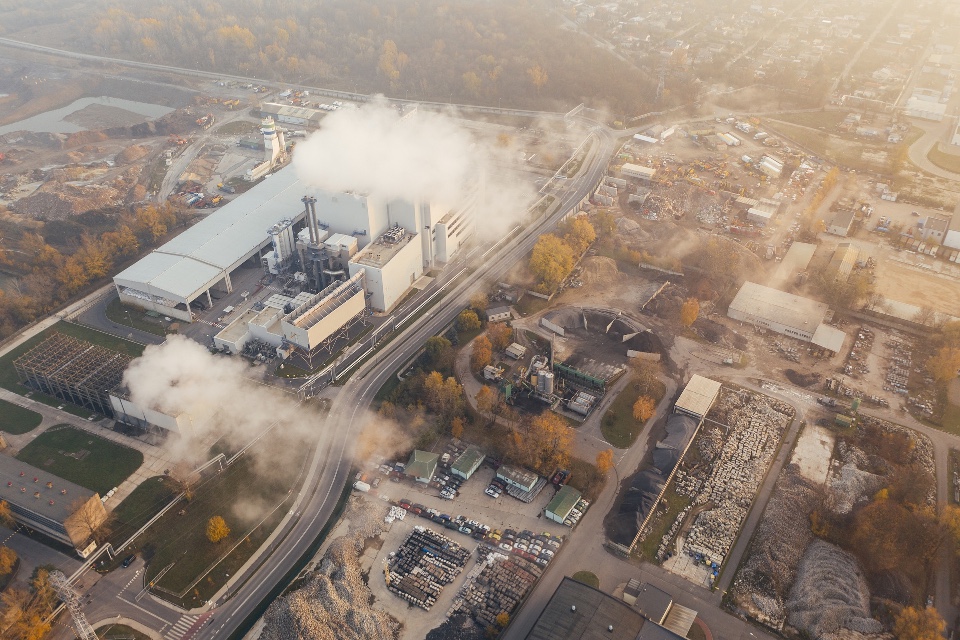Prepping for Net Zero: How your SME can create a Net Zero strategy
https://energymanagementsummit.co.uk/wp-content/uploads/2024/02/net-zero-hendrik-schuette-RoSQ7y3CGqE-unsplash.jpg 960 640 Guest Post Guest Post https://secure.gravatar.com/avatar/cb2a67f15cd7d053d8e638a1df3fd67f?s=96&d=mm&r=gSmall-to-medium enterprises (SMEs) are vital to the consumer fabric of the modern world and are responsible for between 60% and 70% of the world’s industrial carbon emissions. However, they’re often overlooked when it comes to national policy, with huge corporations usually afforded the focus of UK policymakers.
With Sir Keir Starmer’s recent announcement that the Labour Party will shred its flagship pledge to spend £28bn a year on renewable energy projects, the UK’s commitment to its net zero goals have been once again called into question.
We spoke to Charlotte Enright, Renewables Specialist at green finance experts Anglo Scottish Asset Finance, to discuss the state of the net zero landscape, how environmentally minded SMEs can overcome the obstacles they’re faced with and how to create a robust net zero strategy…
The onus on SMEs
The Labour Party’s U-turn on renewables spending mirrors a policy change by Rishi Sunak’s Conservatives back in September, where he decided to relax some of the country’s net zero commitments. This means that, irrespective of the result of the impending general election, the UK’s SMEs face uncertain governmental guidance when it comes to achieving net zero.
The lack of cohesive guidance has already caused problems for UK businesses, who face further uncertainty going forward. The 2023 edition of the Net Zero Barometer Report by the British Standards Institute (BSI) indicates that two-thirds of decision-makers at UK SMEs do not feel confident in their path to net zero.
Similarly, the same study showed that SMEs across various UK sectors are crying out for guidance from the government. 28% of respondents believed that educational projects would help them reach net zero, while a further 22% feel they need more information in order to get there.
Cultural change…
Money and funding issues aside, it’s particularly difficult for SMEs to completely adapt their business practices without total buy-in at all levels of the company. Enright advises that there’s no substitute for real operational change.
“Everyone, at every level of your company, must be pulling in the same direction to begin making real strides from a net zero perspective,” she states. “Too often, we’re seeing firms nominate dedicated net zero individuals or teams. These staff members are given the impossible task of reducing company emissions without sufficient funding or support from upper management.”
…from top to bottom
It’s not just the upper management who should be involved in the net zero process, however. SMEs should be looking to engage employees of all levels in net zero strategies. It’s often those who are working with company technologies and procedures every day who can provide the most insight into how to streamline those processes.
“Company-wide consultation on net zero strategy might be a challenge to organise initially, but it’s likely to lead to increased employee advocacy for your net zero program and the wider company alike,” says Enright. “Your company could even gain a competitive PR advantage by doing so.”
Increasing emission visibility
Once you’ve ensured that the entire company is onside with your company’s sustainability mission, it’s vital to take a strategic view in terms of monitoring emissions. “For most SMEs,” says Enright, “the best primary course of action is getting a handle on where exactly your emissions come from.”
Corporate emissions can be categorised into three distinct groups – or scopes – a system devised by the Greenhouse Gas Protocol – the world’s most-common greenhouse gas accounting standard. These are:
Scope 1 emissions
Emissions from sources that an organisation owns or controls directly – for example from burning fuel in a fleet of vehicles (if they’re not electrically powered).
Scope 2 emissions
Emissions that a company causes indirectly. These emissions tend to come from where the energy that the company purchases and uses is produced. For example, the emissions caused when generating the electricity used in your building would fall into this category.
Scope 3 emissions
Emissions that are not produced by the company itself and are not the result of activities from assets owned or controlled by them. These emissions are those that your business is indirectly responsible for up and down its value chain. Scope 3 emissions include all sources not within the scope 1 and 2 boundaries.
Understanding where the bulk of your company’s emissions come from is the first – and perhaps most vital – step in ascertaining your goals.
Setting goals
With visibility over where your company’s emissions come from, the next step is setting your goals. The best plans for net zero are regularly reassessed at regular intervals to ensure progress is being met. Specific, Measurable, Achievable, Relevant and Time-sensitive (SMART) targets of varying lengths are necessary to keep the big picture in mind and to meet shorter-term targets.
Planning for 2050 – the UK’s current net zero goal – should be the endgame, but successful net zero strategies must be reachable via a series of shorter two-to-three year targets that work in pursuit of the wider goal.
Success will look different for different companies. Your targets can take inspiration from similar, aspirational businesses, but must be tailored to you and your needs. The Oxford Martin Net Zero Carbon Investment Initiative has published a series of Principles for Climate-Conscious Investment to inform and guide your firm’s spend on the way to net zero.
Taking collective action
Collaboration with businesses across your supply chain is a great place to start your net zero strategy, enjoy increased visibility over results and maximise your impact. Most SMEs work regularly with partners or suppliers who will be in the same boat as you when it comes to net zero compliance – and working together can reap a whole host of shared benefits.
Consult with your partners to collectively adopt and promote net zero initiatives, and ensure that your entire value chain is contributing to reducing emissions. As well as helping progress each partner towards net zero, you will likely enhance your collective reputation as a result of standing together on environmental issues.
Recent months have also revealed strong results from a number of collaborations between larger corporations and SMEs. If your SME functions as part of the supply chain for a larger corporation, it may be worth discussing how they can utilise their resources to support associated businesses.
However, it’s vital that any net zero collaboration your business makes is aligned with the Green Agreements Guidance, monitored and administered by the Competition and Markets Authority (CMA). This set of guidelines can be used to ensure your collective green action does not fall foul of competition law.
Financial modelling
“The U-turns from both the Tory and Labour parties indicate just how volatile the net zero landscape is,” comments Enright. “So, it’s understandably daunting for SMEs to invest in sustainable infrastructure, particularly when we take fixed cost increases and inflation into account.
“One way to combat this,” she states, “is by first investing in dedicated sustainability modelling tools. These could take the form of training courses, to help better understand the risks associated with a sustainable investment, or a digital tool, to project the performance of your investment in various sustainable initiatives.
“Knowing how to accurately conduct sensitivity and scenario analyses could be the difference between rushing into an ill-advised outlay, or investing successfully,” she advises.
Accessing funding
Even with access to the latest financial modelling software and training, the amount of operational change required for some SMEs may be impossible using only internal funding. In the current landscape, it’s vital that mid-sized businesses are aware of the external funding facilities available to them.
These could come in the form of government funding. SMEs may be eligible for different government grants or loans intended for businesses investing in green technologies with a view to limiting emissions.
Dedicated green bonds and green loans are another valuable facility at your disposal. Global uptake of these green finance methods increased from $5.2bn to $540.6bn between 2012 and 2022, indicating the importance of green finance in the route towards net zero.
These are monitored centrally according to the Green Loan Principles (GLP), which dictate that you must report your company spend on green initiatives, as well as the impact those projects have made.
Enright comments: “Inconsistent messaging from UK leaders has made it difficult for SMEs to know where they stand with regards to national sustainability and how much of the weight of the UK’s net zero push falls on their shoulders.
“Regardless of what your company is being asked to do by the government, a net zero policy is important in terms of your company’s role in the wider push for sustainability. It can also give you a competitive advantage!”
With the right guidance, creating a net zero strategy for your SME need not be as as daunting as it might seem
Photo by Hendrik Schuette on Unsplash











